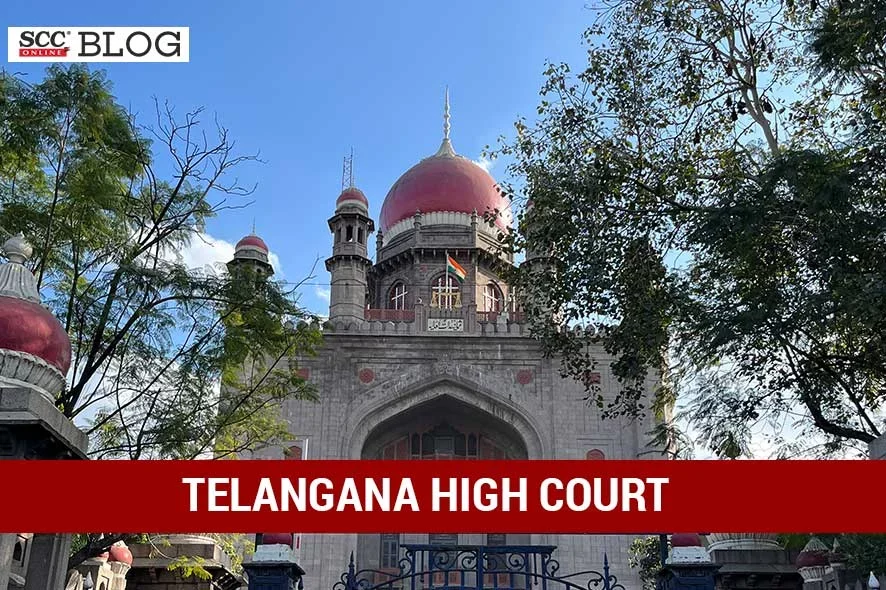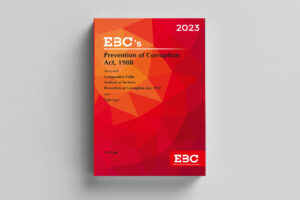Telangana High Court: In a case wherein appellant, Sub-Inspector of Police challenged the judgement of the Trial Court where he was convicted for demanding bribe of Rs 5,000, K. Surender, J.*, set aside his conviction and opined that recovery of money could not be made any basis to assume that demand was made by appellant.
Background
On 01-02-2006, a complaint was lodged against the son of the defacto complainant, by Radhakrishna Murthy, wherein he alleged that his daughter was kidnapped. Based on the complaint, appellant arrested the son of defacto complainant. The defacto complainant returned to India and one of the constable asked for bribe of Rs 6,000 for not adding his name in the charge sheet which was filed against his son. Thereafter, appellant demanded Rs 5,000 and asked him to pay the said amount by 26-04-2006. Aggrieved by the said demand of bribe, defacto complainant, and his cousin filed a complaint on 01-05-2006 to the Deputy Superintendent of Police, Anti-Corruption Bureau, Nizamabad (‘DSP’). After verifying the antecedents of appellant, the crime was registered.
DSP formulated a trap along with an independent mediator and another person to trap appellant. Accordingly, defacto complainant went to appellant and handed over the tainted amount and later, a test was conducted on appellant and tested positive. The CD file of crime against defacto complainant’s son was seized and after trap proceedings, mediators report was drafted. After investigation, a charge sheet was filed against appellant. The Special Judge found appellant guilty of demanding and accepting the bribe and he was convicted.
Appellant submitted that a chargesheet against the son of defacto complainant was filed on 26-04-2006 and the date of alleged demand was also 26-04-2006, and on that date there was no official favour pending and question to implicate defacto complainant did not arise.
Analysis, Law, and Decision
The Court noted that the charge sheet was filed on 20-03-2006 itself and the defacto complainant also had knowledge about it and he was also informed by his counsel that there was no scope of involving him in the case or diluting the case against his son. The very genesis of complaint being lodged could not be done even according to knowledge of defacto complainant, had created doubt about him approaching appellant and demand made by appellant.
The Court noted that the defacto complainant later denied the contents of the complaint and thus, the Court opined that the defacto complainant was a self-condemned witness who had given different versions during investigation and trial.
The Court opined that it could be inferred from the fact that nearly five weeks prior to the alleged demand of bribe, a charge sheet was filed. The investigating officer became functus officio when charge sheet was filed after investigation, unless there would be further investigation under Section 173(8) of Criminal Procedure Code, 1973, which was not the case against the defacto complainant’s son. The said circumstance created doubt regarding the version given by defacto complainant at the time of lodging complaint being correct as he knew that there was no scope of doing official favour.
The Court opined that the facts of the case arose a doubt regarding allegation and recovery of money could not be made basis to assume that demand was made by appellant. The Court thus held that the alleged demand made by appellant was not proved.
The Court relied on K. Shanthamma v. State of Telangana, (2022) 4 SCC 574, wherein it was held that when demand of illegal gratification was not proved which was sine quo non for establishing an offence under Section 7 of the Prevention of Corruption Act, 1988, the case would not be established. Accordingly, the Court allowed the appeal and set aside the judgement of the Trial Court.
[Bairam Muralidhar v. State of Telangana, 2024 SCC OnLine TS 15, decided on: 01-02-2024]
*Judgment Authored by: Justice K. Surender
Advocates who appeared in this case :
For the Appellant: P. Yadaviri Reddy, Advocate
For the Respondent: Sridhar Chikyala, Special Public Prosecutor for ACB







